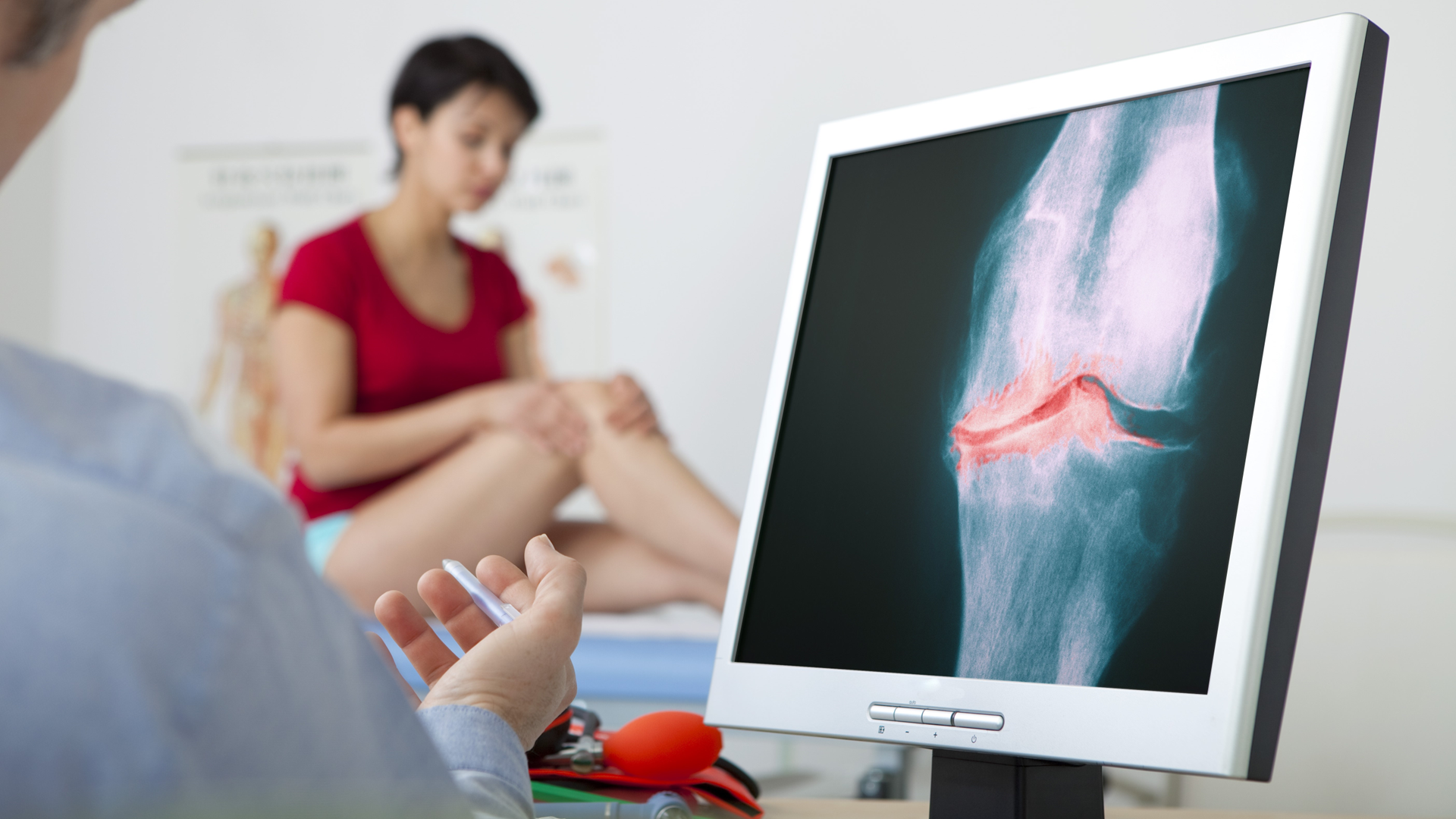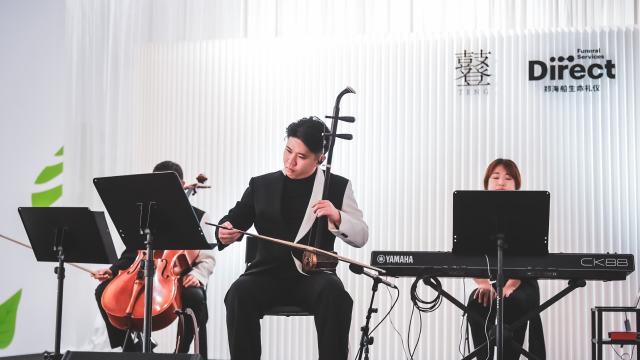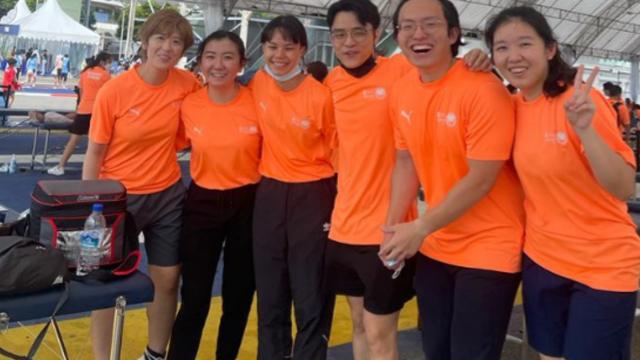Asst Prof Anthony Goff's study on the effects of knee osteoarthritis clinched the La Trobe Sport and Exercise Medicine Research Centre Prize.

Osteoarthritis affects the whole knee joint including the bone, cartilage, ligaments and muscles. It can cause pain, stiffness, and swelling. (Photo: Shutterstock)
In his years practising as a musculoskeletal physiotherapist in the United Kingdom, Assistant Professor Anthony Goff from the Health and Social Sciences Cluster, SIT, frequently spent time educating his patients, prescribing exercise programmes and performing hands-on therapy. However, he increasingly found himself having to dedicate more time to debunk common myths about knee osteoarthritis.
One common myth, for example, is that patients should refrain from exercising to reduce bone damage, when active exercise is in fact one of the best things they can do.
Seeing first-hand how patient education was becoming increasingly pertinent in clinical practice inspired Asst Prof Goff to undertake his PhD investigating its effects on outcomes for people with knee osteoarthritis.

Asst Prof Goff (left) observed that knee osteoarthritis was a relatively under-studied area despite being one of the leading causes of disability worldwide. He also noted that there has been a big culture shift towards self-management – empowering patients and educating them on how to be healthier because a lot of risk factors come back to the same few things such as exercise, physical activity, and weight management.
For three and a half years, Asst Prof Goff juggled between teaching physiotherapy at SIT and researching. In 2021, the first paper of his PhD was published in the Journal of Physiotherapy. He also clinched the La Trobe Sport and Exercise Medicine Research Centre Prize for Best Paper by a PhD student.
“I was super happy. It’s not just about the paper – you had to state your case for why your paper deserved this (prize). I was pleased that all my hard work, on the paper and that pitch I put together, paid off,” he beamed.
Where Pedagogy and Practice Meet
His paper made waves in academia, being cited 700 per cent more than other related papers of a similar age.
Asst Prof Goff hopes his findings will inform future clinical practice guidelines for knee osteoarthritis and facilitate a shift towards educational aspects being taken more seriously by healthcare professionals.
This desire fuelled him to create the Translating Research Evidence and Knowledge (TREK) ‘My Knee’ education and self-management toolkit in 2022. Developed from scratch and based on his own research, the ‘My Knee’ toolkit is an interactive website that offers a digital repository of resources for patients with knee osteoarthritis, allowing them to take ownership of their own health and rehabilitation.
“A lot of websites bombard you with information,” he pointed out. “To overcome this, the ‘My Knee’ toolkit boasts a novel personalised guide maker feature that enables users to create their own self-management guide, based upon their individual preferences and learning needs.”
“For example, if someone wants to improve their physical activity and weight management, we tailor a guide to facilitate this. Conversely, some people may be quite comfortable with exercise but want more information about medication and lifestyle management, and a guide is created to support their needs,” he added.
More importantly, the ‘My Knee’ toolkit was co-developed with patients with knee osteoarthritis and healthcare professionals. This is significant as some of his research identified a mismatch between what people with knee osteoarthritis want to learn about, with what clinicians provide and what guidelines recommend about. Therefore, Asst Prof Goff hopes that his toolkit can be used not just independently by patients, but also be a value-added tool for practising professionals.
“In higher education, we really value blended learning,” he said, referring to a pedagogy that embraces a mix of online and face-to-face learning. “In the clinical setting, patient education is still very much didactic, and I don't think it should be like that. So I'm trying to bring some of the teaching pedagogy into the clinical setting.”
While the website is still being tested in the Australian population, he hopes to adapt it to the Singaporean context. This means accounting for the influence of eastern medicine, making sure the site is accessible in the four official languages of Singapore, and making its content culturally relevant and relatable.
A Joint Effort
Besides the online toolkit, he has incorporated his newfound findings into his classes at SIT. For instance, in the module, “Foundations for Physiotherapy III”, patient education is now being taught as a foundational skill that students have to familiarise themselves with before going into their clinicals.
At the same time, Asst Prof Goff is working on various projects with students to analyse the accessibility and accuracy of online health information about osteoarthritis in Singapore, including how the local media reports about osteoarthritis.

Asst Prof Goff with his students working on analysing online health information about osteoarthritis at Health and Social Sciences Cluster Poster Day. (Photo: Anthony Goff)
“I think we are actually the first people in the world to be looking at media content analysis for osteoarthritis,” he said.















![[FA] SIT One SITizen Alumni Initiative_Web banner_1244px x 688px.jpg](/openhouse2025/openhouse/sit-teaching-and-learning-academy/sit-teaching-and-learning-academy/directory/sit-teaching-and-learning-academy/sites/default/files/2024-12/%5BFA%5D%20%20SIT%20One%20SITizen%20Alumni%20Initiative_Web%20banner_1244px%20x%20688px.jpg)


